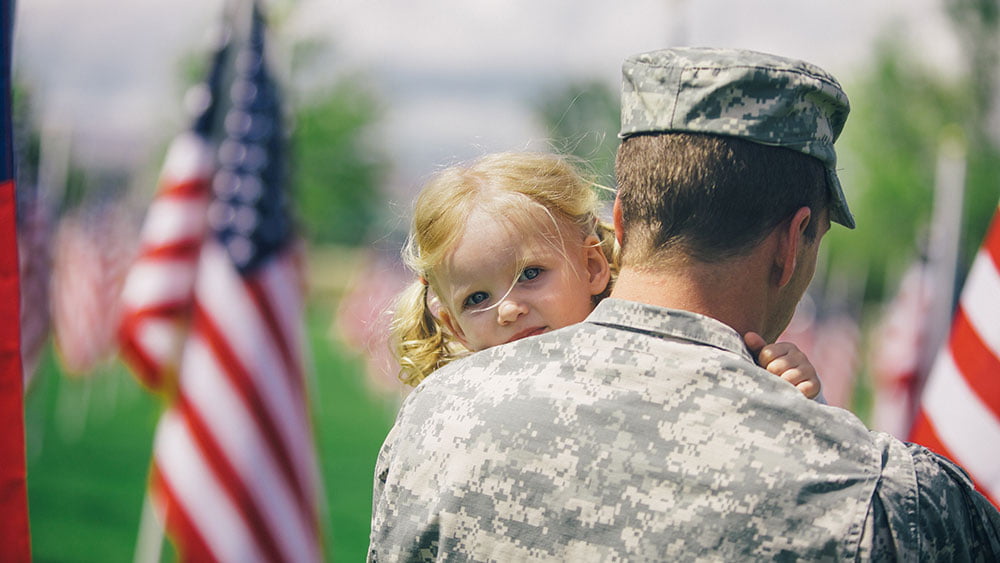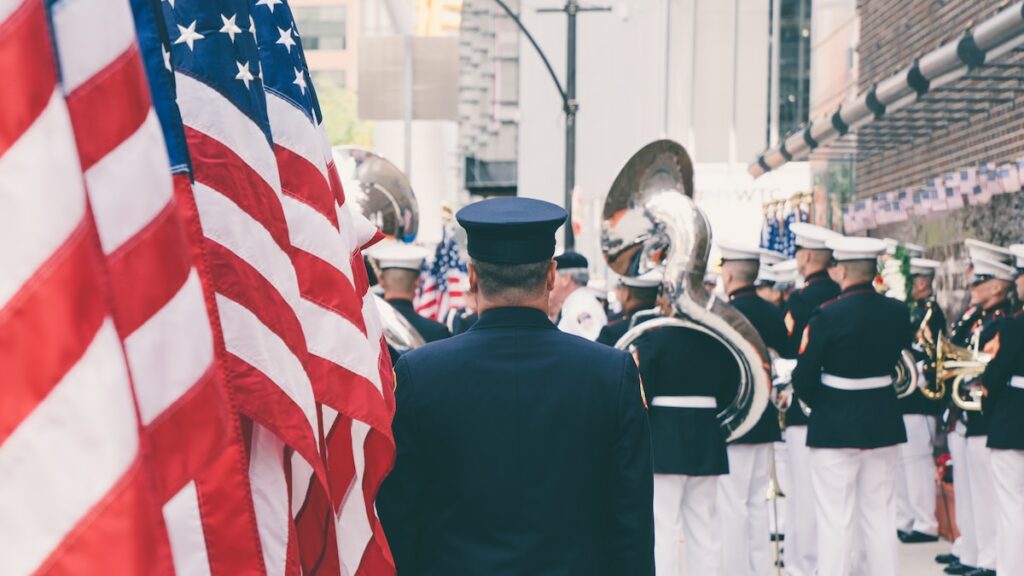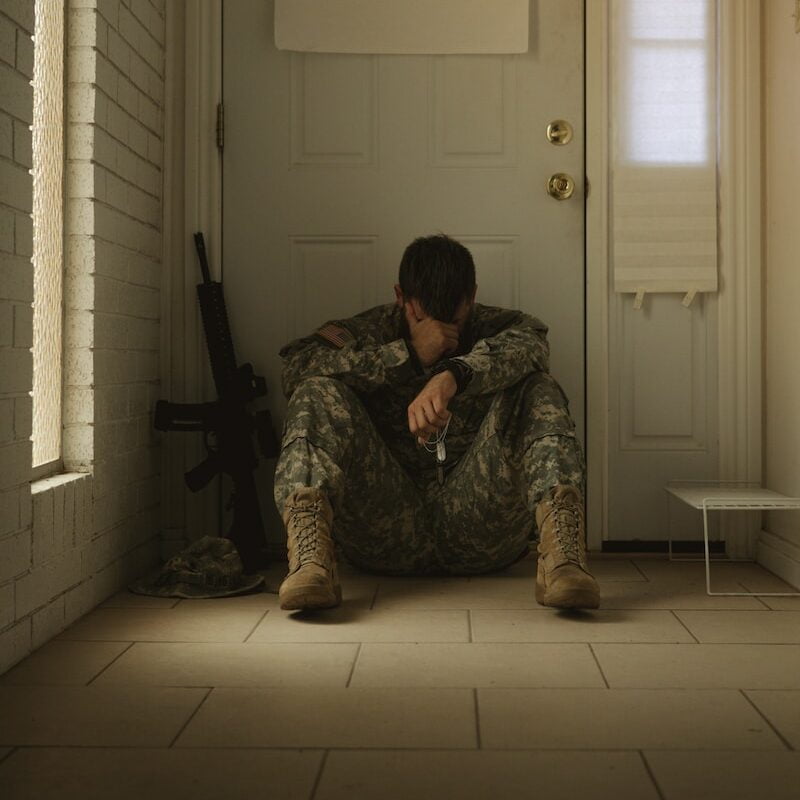Thank You For Your Service- The Mental Health of Veterans and Police Officers Over a Barrel

As Veterans Day draws near, it’s a time to pay tribute to all those who have dedicated themselves to military service. Speaking as a veteran, I’m deeply moved when people express their appreciation with the phrase ‘Thank you for your service.’ Nevertheless, I believe we should consider this heartfelt sentiment from a different perspective. What actions are we taking to demonstrate our gratitude to veterans who have selflessly served our nation, yet find themselves grappling with mental health challenges, addiction, suicidal thoughts or homelessness?
When we hear people saying ‘Thank you for your service,’ it often seems to conceal a hidden issue that haunts veterans daily. As a veteran, I genuinely appreciate and understand the kindness behind this expression. However, those who took an oath to support and defend the United States Constitution may find themselves grappling with the challenging transition from military to civilian life, along with the burden of mental health issues, addiction, or even thoughts of suicide. The question that arises is whether ‘thank you for your service’ truly conveys gratitude to those who are burdened by these profound challenges.

Who supports veterans and first responders in an unresponsive society?
Veterans are continuously fighting a war. Whether it be the Iraq War or a war on drugs, there are no shades of gray when saying the word war. It simply can be utilized in a different connotative sense. Veterans coming back from war zones are facing a new, unexpected, vicious fight: the war on life. The transition from military life to civilian life is not simply being happy to return to their family. Soldiers are accustomed to many different phrases. For example, ‘check your six’, unless this is explained to anyone it may be misinterpreted by many. Who is looking over a veteran’s six (behind them)?
Veterans Day is a Federal Holiday that is recognized for all veterans. Yet, let’s focus a minute on not just thanking them for their service, but assisting them with their struggles. Many crisis lines exist and the effort to help veterans is slowly progressing. Yet, when you swore to defend and support the Constitution of America from all enemies foreign and domestic, who will support you or shed light on the many who are facing down a barrel of a weapon to stop the pain? The way of life changes for a Soldier. According to the ‘Substance Abuse and Mental Health Services Administration’ studies show that 44 percent to 72 percent experience high levels of stress as they transition from being a soldier to being a part of Civilian life.
From Solders to First Responders
Veterans return home and seek to fill the void that lies within. As a Soldier you are trained to execute a mission and the end goal is always to protect your fellow soldier from harm’s way and ensure that the mission is also securing the safety of people. Thus, when thinking of this the next logical career move is to become a police officer. The training is similar, the mission is similar and the way of life in this career is similar. However, this career can cause more harm than good to a veteran’s mental health.
Police agencies seek out those who served in the military as they see a distinct relation with a police officer’s day-to-day functions while on the job. The core values Soldiers are trained and instilled with such as integrity, responsibility, and working under pressure are very much the same qualities that police officers possess. However, the similarity runs deeper.
As some Soldiers return with forms of Post Traumatic Stress Disorder (PTSD) due to the war or even some form of trauma they have gone through while serving; the baggage comes with them and does not remain on the battlefield or in the service. Soldiers comprise all branches of service, active duty, reservists, and national guard. Just like veterans’ police officers face the same struggle. This is to show that PTSD, PTS, suicide, and more do not discriminate. As well, as opt to not talk about it.


The Misrepresentation of Veterans
The media has placed such a negative outlook on veterans as well as the portrayal of police officers. According to a RAND research study, veterans may demonstrate signs of serious mental health problems, as they titled, “invisible wounds.” Yet, according to the VA News despite being depicted as “dangerous,” there seems to be a tendency that depicts there is a higher report of mental health amongst civilians than veterans in state and federal prisons.
There has been progress in the battle against stigma that holds weight on PTSD and mental health, but it does not take away the fact that veterans still do not attempt to seek help.
Final Thoughts
Just as veterans, police officers are no different than facing that stigmatic approach to seeking mental health treatment. A great deal is concerned with how they may be perceived, treated, or even hazed. Similar to veterans, police officers also confront the same stigmatized perspective when it comes to seeking mental health assistance. Much concern revolves around how they might be perceived, treated, or subjected to unwelcome reactions.
The prospect of potential job loss, the fear of appearing vulnerable or ineffective, and the anxiety of undergoing hospitalization can deter veterans, police officers, and even individuals in general from reaching out for the support they need. Despite the multitude of statistics presented in various publications and research, the underlying question persists: How can we collectively address the global crisis we are confronting and unite to safeguard the mental well-being and safety of our veterans, police officers, first responders, and the general public?
Do you want to share your story and inspire our readers ? Know that every story is paving the way for a brighter, happier future.




